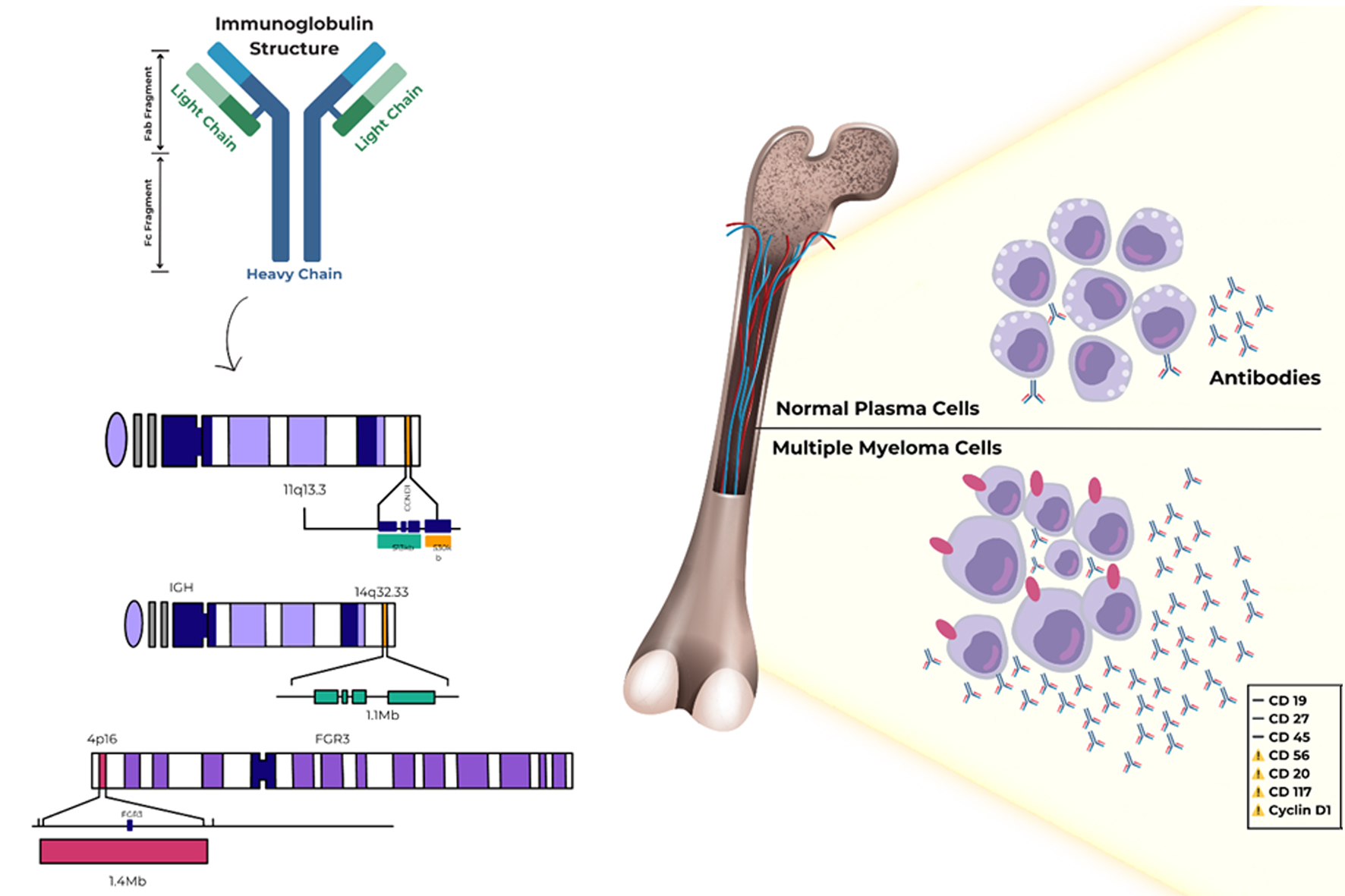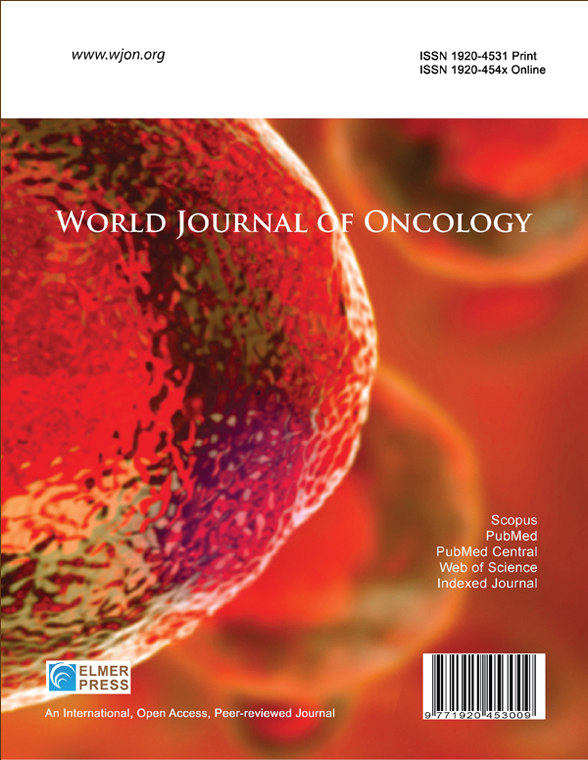IgM Myeloma: A Comprehensive Overview and Practical Approach to Chemotherapeutic Management
DOI:
https://doi.org/10.14740/wjon2611Keywords:
Multiple myeloma, IgM myeloma, Management, Chemotherapy, IgMAbstract
IgM myeloma is a rare subtype of multiple myeloma (MM) comprising 0.5% of all of its cases. It is characterized by the unregulated proliferation of IgM-secreting plasma cells in the bone marrow. The underlying pathogenesis involves dysregulation of isotype switch recombination, leading to various translocations involving chromosomes such as 11q13 and 4p16. Patients usually present with symptoms of hyperviscosity syndrome, bone marrow infiltration, and organomegaly. Diagnostic workup includes clinical evaluation, laboratory tests (electrophoresis, bone marrow biopsy, cytogenetics, immunohistochemistry), and imaging. Treatment options for IgM myeloma include proteasome inhibitors, immunomodulatory drugs, monoclonal antibodies, and autologous stem cell transplantation. However, no clear management guidelines are established for this rare subtype of MM. This article provides an up-to-date detailed overview of the pathogenesis, clinical features, and diagnostics of IgM myeloma.

Published
Issue
Section
License
Copyright (c) 2025 The authors

This work is licensed under a Creative Commons Attribution-NonCommercial 4.0 International License.









